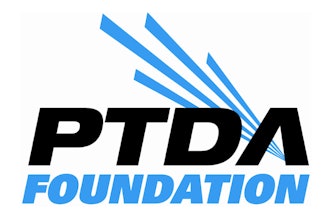I work for a forward-thinking organization, a family business that is trying to not only maintain, but also reinvent itself for the obvious evolution that is taking place in our marketplace. Despite the trend towards all things innovative, we did incorporate a very ancient practice into our business transition and succession planning: the apprenticeship.
The idea came to me after hearing one of our tenured sales representatives start talking casually about retiring. I panicked thinking, He can't just hang it up all of the sudden. That could be disastrous losing his skills, experiences, and relationships overnight. How can we do this gracefully? Clone him? Maybe a Matrix-like brain upload?
All of these thoughts began stacking up in my mind. Then it hit me. I had just wrapped up a great book series by Ken Follet, entitled The Pillars of the Earth. These works of historical fiction follow the construction of an iconic medieval cathedral. Structures such as cathedrals took hundreds of years to build and thus generations of craftsmen would work on them until completion. The novel details relationships between apprentice and master and inspired me to recreate an apprentice program for our sales organization.
Here are the basics:
First, Who is a Master?
Every sales organization is different, so you will have to sit back and observe your organization to determine who qualifies as a Master? It could be a an owner/founder, a technical sales engineer, or your traditional relational seller. They don't have to be old, just valuable to your customers. Ask questions like:
- Does their presence put the customer at ease?
- Do they know important information regarding accounts that no-one else knows?
- Do you cringe at the thought of them existing suddenly?
Young or old, if they add immense value to your organization's sales process and they are considering a transition like retirement, a life change (like getting married or moving out of state), or a career change, then you should consider organizing an apprenticeship with their replacement.
Plan Ahead...Far, Far Ahead
This point is particularly important if the Master's value to the customer is centered around key personal relationships. Relation collateral (such as trust) takes a lot of time to transfer from Master to Apprentice. Furthermore, if your sales cycle is long—as with design engineering and manufacturing—build in even more time. For these reasons, you really can't plan too far ahead. We are just entering the final year of a three-year program for one of our valuable technical sales engineers.
Don't Be Clandestine
Communication is always key, but it is particularly important in this process as open communication is rarely practiced when it comes to sensitive topics like retirement and other life/career transitions. Because of our natural tendencies towards discretion in sales organizations, the sales manager or business owner needs to break the ice to start this apprentice process. Why buck the trend towards discretion? Because open communication regarding your organizations careful planning of key personnel will add value to the sales process. Your customers don't like change, so don't rock their boat. They will greatly appreciate you communicating the upcoming changing of the guard and demonstrating that your organization is taking changes affecting their account very seriously. Plus the customer needs to be well informed as they will be part of the apprentice's training.
Don't Forget Digital
Lastly, we've been talking mostly human, relational capital during this process. There is one more asset that I bet most organizations forget as employees retire, move on, or change roles. Don't forget to have the Master carefully archive digital assets like past email correspondences, project notes, revision drawings, and business proposals. These digital records all tell a story of an account. The ability for an apprentice to quickly find relevant history on key accounts will great increase their odds of success during and after a transition. This is again especially important in B2B sales organizations with long selling cycles.
The goal with all of this is to retain customers long-term by making a graceful transition from one excellent sales person to another, all while supporting the customer and their needs. A Master training an Apprentice who will soon be a Master. This is all for naught, though, if you don't have any Masters. It all starts with investing and retaining sales people, creating Masters. If your organization does not foster Masters, then Apprentices simply have no one to learn from. And it's the organization that will suffer.
Andrew Johnson is an entrepreneur, inventor, and business owner. Formerly the sales manager at the family distribution company, O-ring Sales & Service, he is now pursuing a new endeavor, a tech startup called ShelfAware, which is attempting to redefine industrial distribution by leveraging RFID technology, the internet, and the power of data.























